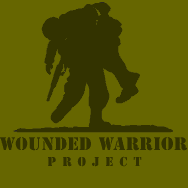Remembering Pearl Harbor
PEARL HARBOR, Hawaii - This will be their last visit to this watery grave to share stories, exchange smiles, find peace and salute their fallen friends.
This, they say, will be their final farewell.
With their number quickly dwindling, survivors of Pearl Harbor will gather one last time today to honor those killed by the Japanese 65 years ago and to mark a day that lives in infamy.
"This will be one to remember," said Mal Middlesworth, president of the Pearl Harbor Survivors Association. "It's going to be something that we'll cherish forever."
The survivors have met here every five years for four decades, but they are now in their 80s and 90s and are not counting on a 70th reunion. They have made every effort to report for one final roll call.
Drawing Comparisons, Asking Questions (VDH on Townhall)
On Dec. 7, 1941 — 65 years ago this week — pilots from a Japanese carrier force bombed Pearl Harbor. They killed 2,403 Americans, most of them service personnel, while destroying much of the American fleet and air forces stationed in Hawaii.
The next morning, an outraged United States declared war, which ended less than four years later with the destruction of most of the Japanese empire and its military.
Sixty years after Pearl Harbor came another surprise attack on U.S. soil, one that was, in some ways, even worse than the “Day of Infamy.”
Nearly 3,000 people died in the Sept. 11 attacks — the vast majority of them civilians. Al-Qaida’s target was not an American military base far distant from the mainland. Rather, they suicide-bombed the United States’ financial and military centers.
It’s been five years since Sept. 11. After such a terrible provocation, why can’t we bring the ongoing “global war on terror” — whether in Afghanistan, Iraq or elsewhere — to a close as our forefathers fighting World War II could?
__________________________
Sixty-five years ago today, the United States endured an attack on Pearl Harbor, Hawaii, that for the next 60 years -- until Sept. 11, 2001 -- stood as the most devastating enemy attack on U.S. soil. Like the terrorist attacks of Sept. 11, the.Japanese raid on Pearl Harbor has been called a defining moment in U.S. history. It caught the country by surprise, rallied its people against their attackers and thrust the nation into a long, difficult war against tyranny.
On the 65th anniversary of the Pearl Harbor attacks, they present more parallels, and possibly lessons, for today’s global war on terror.





















No comments:
Post a Comment